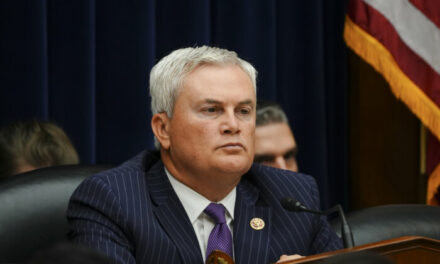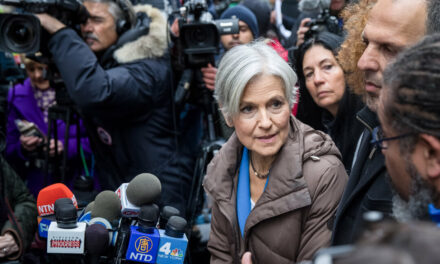We support our Publishers and Content Creators. You can view this story on their website by CLICKING HERE.
‘The United States needs resilient, diverse, and secure supply chains,’ said President Biden.
President Joe Biden directed the federal government to work on strengthening the U.S. supply chain on June 14 by signing an executive order, as he co-signed parallel joint commitments with the other leaders of the Group of Seven (G7) in the southern Italian town of Borgo Egnazia.
The order formalizes the White House Council on Supply Chain Resilience and instructs it to “coordinate and promote federal government efforts to strengthen long-term supply-chain resilience and American industrial competitiveness,” identify threats and weaknesses, and work with partners to strengthen the global supply chain.
It also calls for the council to review supply chains and file a comprehensive report on industries viewed as critical to national or economic security by the end of the year and then subsequently every four years.
“The United States needs resilient, diverse, and secure supply chains to ensure our economic prosperity, public health, and national security,” President Biden stated in the order. “Pandemics and other biological threats, cyber attacks, climate stressors and extreme weather events, transnational corruption, terrorist attacks, geopolitical disputes, unfair economic competition, and other disruptive conditions can reduce critical infrastructure, manufacturing, and processing capacity and the availability of critical goods, materials, and services.”
Co-chaired by the assistant to the president for national security affairs (APNSA) and the assistant to the president for economic policy (APEP), it features more than 30 members.
Included in this council will be most of the president’s cabinet members, from the secretary of defense to the secretary of housing and urban development, administrators from the Environmental Protection Agency and NASA, the director of national intelligence, and the director of the Office of Pandemic Preparedness and Response Policy. The list will also include “the heads of such other agencies and offices as the co-chairs may from time to time invite to participate.”
President Biden said that building resilient supply chains would necessitate government actions such as enhancing manufacturing capacity and encouraging innovations. It would also, among other things, “advance the fight against climate change” and “enhance national emergency preparedness.”
He instructed the council to recommend best practices for agency coordination, identify the federal resources needed to support increased supply-chain resilience, and ensure all operations “are conducted in a manner that promotes a fair, open, and competitive marketplace and empowers workers to advocate for their rights and quality jobs.”
The council is also instructed to make recommendations concerning any federal incentives, reforms to domestic and international trade rules and agreements, and education and workforce reforms.
The council may also consult with outside stakeholders, such as private industry, educational institutions, labor unions, and state governments, on an individual basis, as it is “appropriate and consistent with applicable law.”
President Biden’s executive order follows the release of the G7’s statement in which the leaders stressed the importance of supply chain resiliency and reliability domestically and globally.
“We will implement the principles on resilient and reliable supply chains, namely transparency, diversification, security, sustainability, trustworthiness, and reliability,” the leaders said in a draft statement received by The Epoch Times. “We will do so by actively engaging with partners and the private sector, within and beyond the G7, while preserving economic dynamism and openness.
“We encourage the public and private sectors to make coordinated efforts to strengthen the supply chains.”

 Conservative
Conservative  Search
Search Trending
Trending Current News
Current News 







